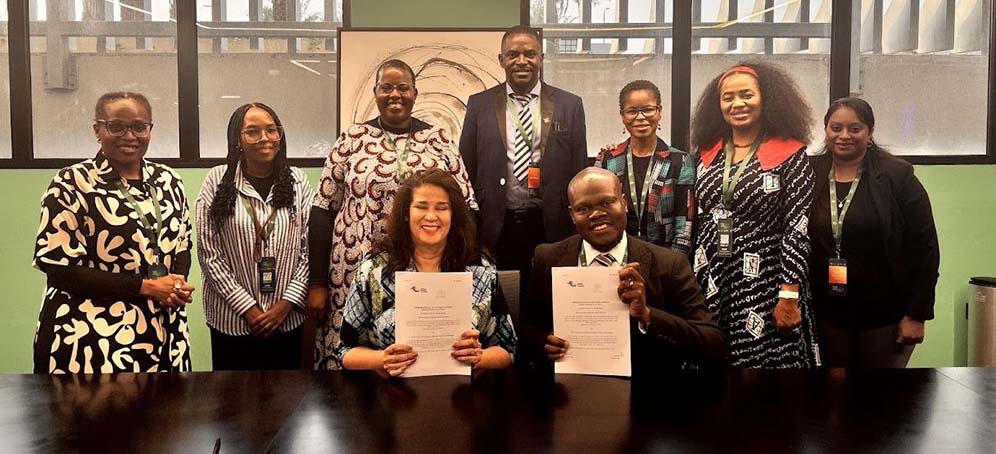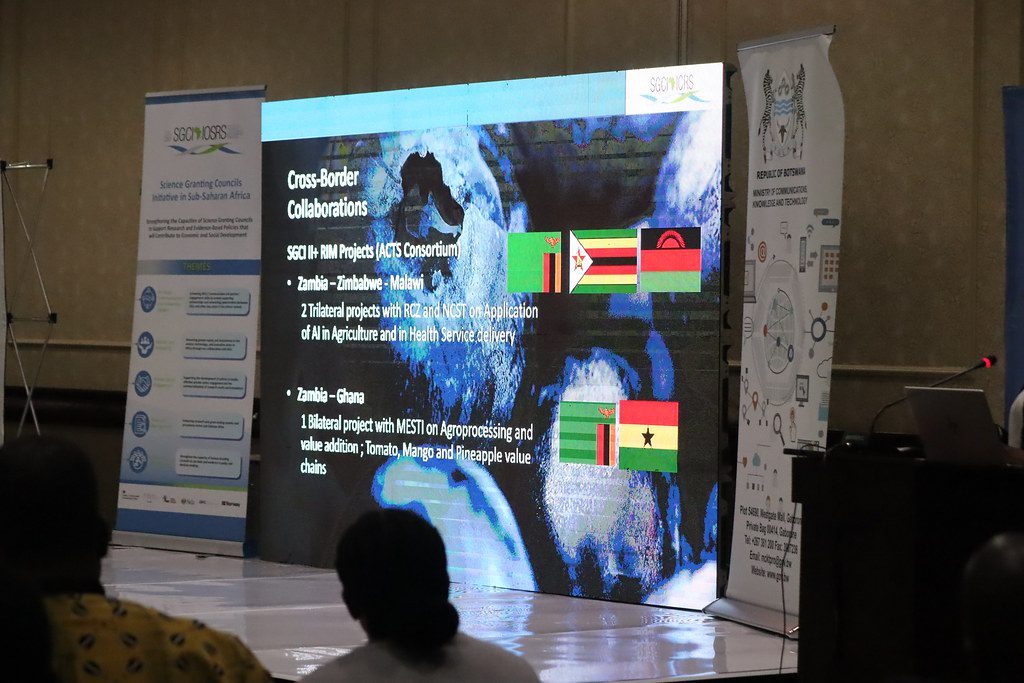SGCI News
The National Commission on Research, Science and Technology (NCRST) Namibia and the National Research Foundation (NRF) South Africa have signed a five-year Memorandum of Understanding (MoU) to strengthen research collaboration…
The National Commission on Research, Science and Technology (NCRST) Namibia and the National Research Foundation (NRF) South Africa have signed a five-year Memorandum of Understanding (MoU) to strengthen research collaboration between the two countries.
The agreement was signed during the 13th annual meeting of the Global Research Council in Riyadh, Saudi Arabia, from 18 May to 22 May.
At the signing ceremony, Anicia Peters, NCRST CEO, said: “Signing this MoU at the GRC underscores our joint commitment to building a cohesive African research ecosystem capable of delivering globally relevant impacts.”

According to Fulufhelo Nelwamondo, NRF CEO, through partnership, they will accelerate cutting-edge research and cultivate the next generation of researchers and scientists across our continent.
Building frameworks for collaboration
The MoU establishes a framework for extensive cooperation across multiple disciplines.
The partnership will launch joint research initiatives to tackle the most pressing challenges facing both nations and the broader African continent.
The collaboration specifically targets critical areas, including energy solutions, digital health innovations, sustainable agro-food systems, and advancing space science.
The partnership will also create pathways for meaningful human capital development where researchers, students, and institutional staff from both countries will benefit from exchange programs that provide access to advanced research infrastructure and comprehensive support systems.
The partnership aims to extend its reach through established international frameworks, particularly the Science Granting Councils Initiative and other global networks, to ensure that capacity-building efforts benefit from proven methodologies and international best practices, amplifying the impact of local initiatives.
Research chairs and awards
Another significant aspect of the collaboration involves establishing bilateral research chairs, which will be hosted at institutions in both countries.
The partnership will also introduce joint researcher rating and award mechanisms to recognise and celebrate research excellence across both nations.
The agreement serves as a model for how African nations can leverage their collective strengths to deliver research outcomes that will benefit not only Namibia and South Africa but also contribute to solving challenges facing the entire continent and beyond.
Please check out the stories and let us know what you think. We would love to hear from you!
Let’s continue the conversation on our social media
Follow us on LinkedIn
Published on 11 June 2025
Written by Jackie Opara
Related News
How Zambia’s science council is funding research that matters
When Zambia’s National Science and Technology Council (NSTC) was established in 1997, its founding vision was to harness science, technology, and innovation to improve the lives of ordinary Zambians. More than two decades later, that vision is increasingly taking shape through a growing portfolio of…
Voices of SGCI: Council leaders on the direction and ambition of SGCI 3
At the African Union’s Science, Technology and Innovation Week in Addis Ababa, earlier this month, leaders of science granting councils reflected on what SGCI Phase 3 represents for Africa’s science and innovation systems. From ownership and alignment to stewardship and sustainability, here are their voices…
Building Africa’s science future: inside the SGCI alliance
As Phase 3 of the Science Granting Councils Initiative launches on the margins of the African Union Summit in Addis Ababa last week, the SGCI Alliance Chair explains why this moment marks a decisive turning point for African science. Cephas Adjei Mensah describes what is…
SGCI funded projects
Rwanda’s integrated approach to sustainable agriculture and nutrition
Project Titles & Institution Areas of Research Number of Projects being funded Project Duration Grant Amount In-Kind Distribution Council Collaboration with other councils





